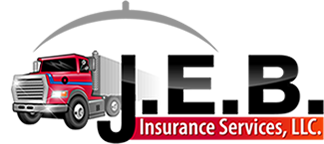Which is the more serious situation, a jackknife or a rollover? Answer: a rollover is by far the worst scenario. If you react quickly, you can take corrective action and recover from a jackknife. This isn’t the case with a rollover. Because your trailer is more top-heavy than your tractor, it will start tipping first, and by the time you feel the tractor tipping, the trailer is close if not beyond its point of no return. It will complete its rollover and take you down with it. A jackknife potentially causes less damage and driver injury than a rollover because the rig remains upright.
No truck driver is ever immune to a rollover because even the most experienced truckers can let their guard down at the wrong time. There are many circumstances that can cause this type of accident. Taking a turn too quickly is one of the most obvious causes. Experienced truck drivers know to take it easy when driving on winding highways and when taking interstate off ramps. They also understand that the speed limits of off-ramps and winding roads are meant for cars on dry pavement and that trucks should ride at least 10 mph slower.
Rollovers more commonly occur in places where they aren’t expected such as on straight sections of the road or on gentle curves. These situations can make truck drivers too relaxed and complacent. While daydreaming or talking on a cell phone, their trailer wheel may go onto a soft shoulder and start a rollover. Alternatively, a traffic incident may take them off guard because they weren’t looking very far down the road. This forces them to swerve too aggressively, which causes the trailer to initiate a rollover. Aggressive lane switching on a gentle curve is also enough to cause a rollover.
You can avoid rollovers by:
- Keeping your speed down.
- Looking farther down the road.
- Allowing plenty of following distance.
- Avoiding distraction.
- Getting plenty of rest.
- Keeping your rig well maintained, including the suspension, brakes, and tire inflation.
- Avoiding complacency and over confidence.
- Avoiding sudden maneuvers and braking, even in emergency situations.
- Driving defensively and always staying alert and focused.
Follow the above advice to avoid injuring yourself and others, and to avoid damaging your rig and cargo. Although your rig insurance will help you get through the ordeal, it’s best all around to never get into such an accident in the first place. If you’re looking for quality rig insurance at affordable rates, contact us today at J.E.B. Insurance Services, LLC. We provide cargo insurance in the states of Florida, Georgia, Texas, North Carolina, South Carolina, Tennessee, Illinois, Iowa & Nebraska.


